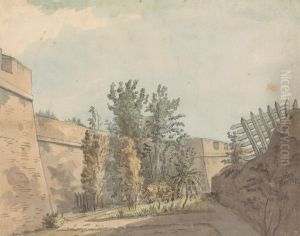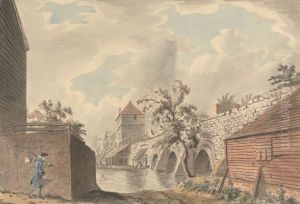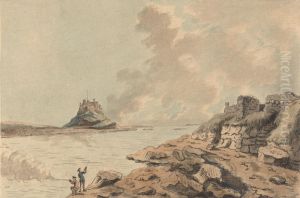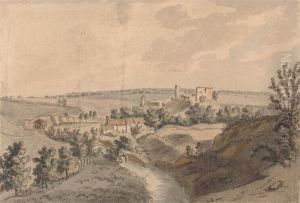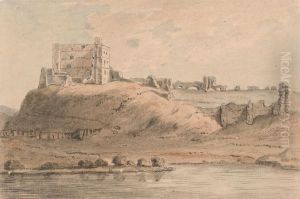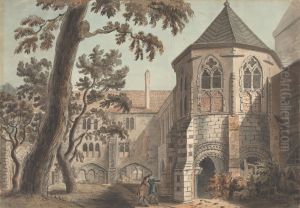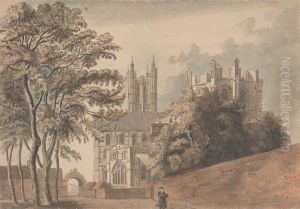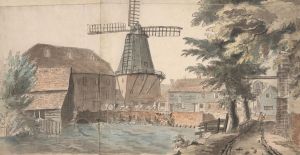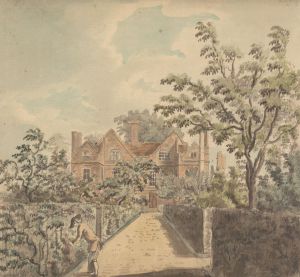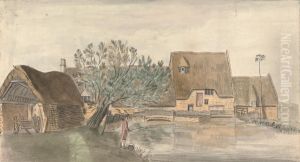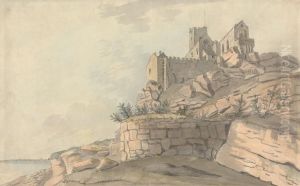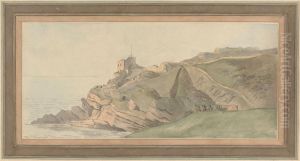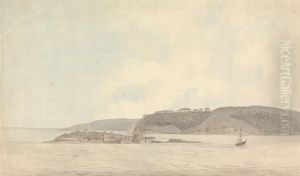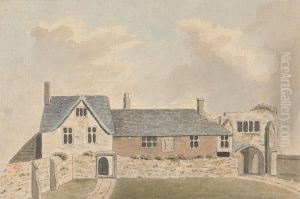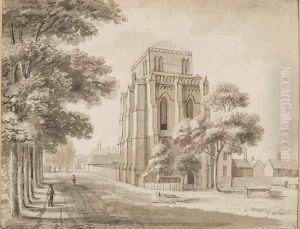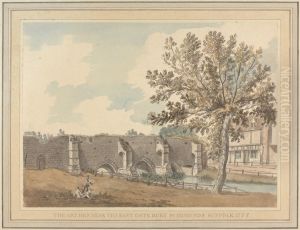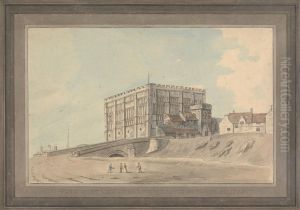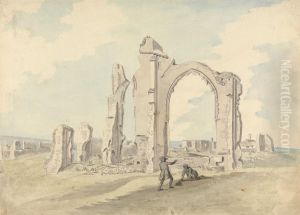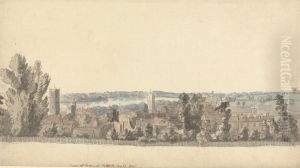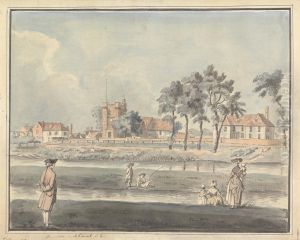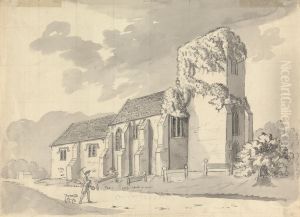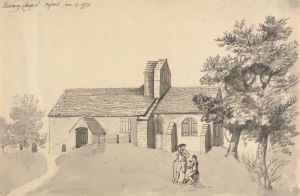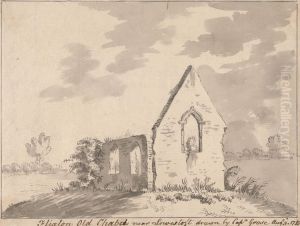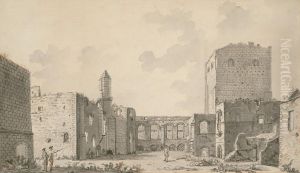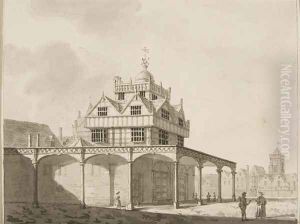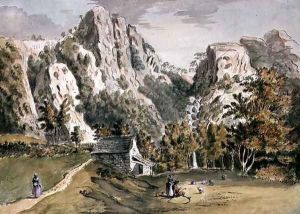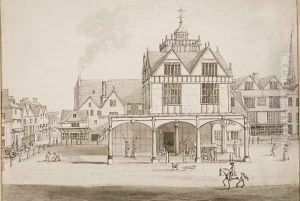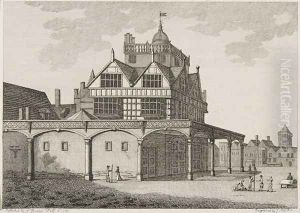Francis Grose Paintings
Francis Grose was a notable English antiquary, draughtsman, and lexicographer, born in 1731. He is best remembered for his significant contributions to the study of British antiquities and his pioneering works in the collection and documentation of English folklore, provincial dialects, and classical architecture. Grose's eclectic interests and his endeavors in various fields of study left a lasting legacy in the realms of antiquarian research and lexicography.
Grose embarked on his career initially with a focus on military subjects, likely influenced by his early commission in the Surrey militia, where he eventually reached the rank of captain. However, his interests soon expanded beyond the military, delving into the rich tapestry of British history and culture. His most celebrated work, 'Antiquities of England and Wales,' published in several volumes between 1773 and 1787, was a groundbreaking endeavor that captured the architectural and archaeological heritage of the country. This comprehensive survey, replete with detailed illustrations and descriptions, was instrumental in awakening public interest in the nation's historic and cultural heritage.
Aside from his antiquarian pursuits, Francis Grose made significant contributions to the study of English lexicography. His work 'A Classical Dictionary of the Vulgar Tongue' (1785) was a seminal publication that compiled the slang and unconventional English spoken by various social classes, particularly the lower classes and the criminal underworld. This dictionary was not only invaluable for scholars studying the evolution of the English language but also provided a fascinating glimpse into the social history of the time.
Grose's fascination with folklore and the supernatural was evident in his later works, such as 'The Antiquarian Repertory' and 'A Provincial Glossary with a Collection of Local Proverbs and Popular Superstitions,' which further underscored his role as a pioneer in the documentation of English cultural traditions. His travels throughout England, Scotland, and Ireland, meticulously recording antiquities, contributed greatly to the preservation of British heritage.
Francis Grose's death in 1791 in Dublin, while working on a supplement to his 'Antiquities of Scotland,' marked the end of a prolific career. His extensive collections of drawings and manuscripts have continued to serve as invaluable resources for historians, archaeologists, and linguists. Grose's unique combination of scholarly rigor, curiosity, and a genuine love for the subjects of his study cemented his place as a key figure in the annals of English antiquarianism and lexicography.
